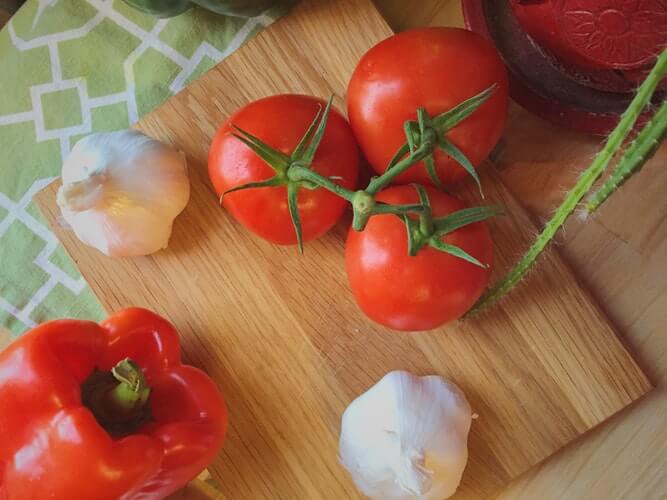Considered as a fruit and vegetable at the same time, the tomato is a faithful companion in the kitchen either in summer for salads or in winter to accompany the pasta in sauce. What benefits does your consumption bring to the body? What conditions must your crop meet to care for the environment at the same time?
Benefits of Tomato
In stews, salads, sauces, pizzas, small, large, to serve with bread and even alone! Tomato in all its forms and presentations is undoubtedly one of the kings of the Mediterranean diet, present in many of the foods we eat on a daily basis. Good news for us is that its many benefits for our body make it a truly complete food.
Its high content of lycopene, which gives it the red color characteristic, making it one of the best allies in the fight against cancer, and there are more studies that makes it a really powerful food to prevent formation of tumors. This in itself is a great contribution to our health, but there are more.
They are a strong source of a mineral called chromium. It has been shown with scientific studies, that chromium serves as an aid for patients with diabetes (know about diabetes mellitus disease), this is because it manages to maintain their blood sugar levels in a controlled manner. Eating a cup of tomato provides 7.5 percent of the recommended daily value of chromium.
Because of its high potassium content, its intake is of help in correct muscle contraction, as the tomato helps to keep the body hydrated and thus avoid the presence of cramps or various pains caused by the deficiency of this important nutrient.
By consuming tomatoes you can feel a lot of energy and vitality; another great benefit of the tomato is that it can help to lose weight, because it is proven that it has the property of burning fat in the body. Therefore, it can not be lacking in the daily feeding of the whole family.
Tomato juice is recognized as a remedy and this is because its regular consumption is a guarantee of protection against erythema, which is a skin condition that is characterized by skin rashes or redness and is caused by radiations of ultraviolet rays. It has been attributed to the application of direct tomato on the skin, an action and astringent function, which will decrease fat and is therefore frequently used to treat cases of acne, although in certain people it can trigger allergic reactions but only if you have very sensitive skin.
This forming more than 90% water, which makes it a light option and also in a great diuretic to avoid fluid retention that makes us feel so swollen sometimes. It offers an important contribution of vitamins A, B, C and K to nourish our bodies and keep us healthy and beautiful.
For children to eat without difficulty can be added to their juices, if you are going to prepare a glass of mango juice, you can add a tomato to that glass and rest assured that you will be giving a delicious superfood, healthy and nutritious in a way you will not notice.
The tomato is also a great antioxidant, collaborating in the fight against the aging of cells and remains one of the reasons why the Mediterranean diet has been associated with longevity. Full of minerals is undoubtedly a great choice to include all your meals. Enjoy the taste and healthier lives every day!
Who should avoid eating tomato
The tomato is one of the foods advised against, however, when it suffers from sores or canker sores in the mouth, due to its acidity. For example, many people who undergo chemotherapy treatments suffer as a side effect mucositis, an alteration of the mucosa of the mouth that produces inflammation and sores, whose pain is accentuated with acidic foods such as tomatoes.
For the same reason, people with alterations in the digestive system should avoid tomato consumption. So, if you suffer esophageal sphincter, heartburn, stomach ulcers, or have gone through a digestive surgery, it is preferable that this food is not consumed.
Because of its potassium content, tomato intake is also contraindicated in those who must restrict the consumption of this mineral, as is the case of patients with kidney disease (acute or chronic renal failure), severe tissue damage, deficiency of insulin or metabolic acidosis.

